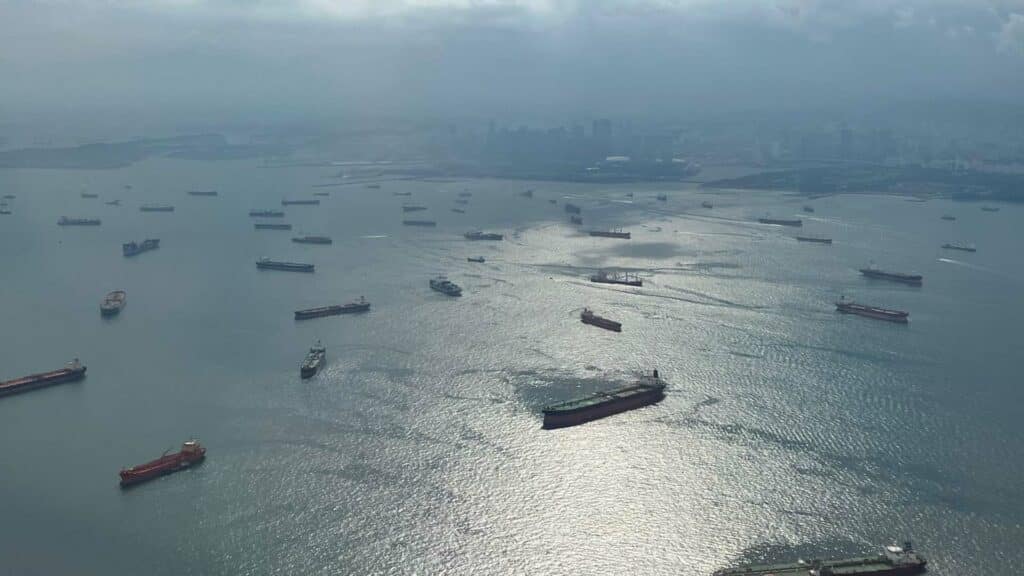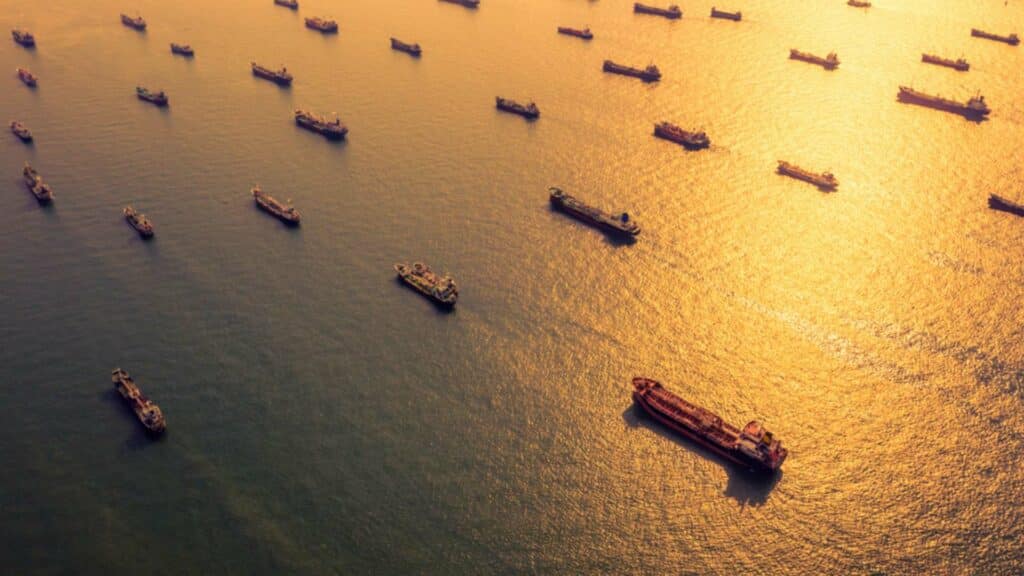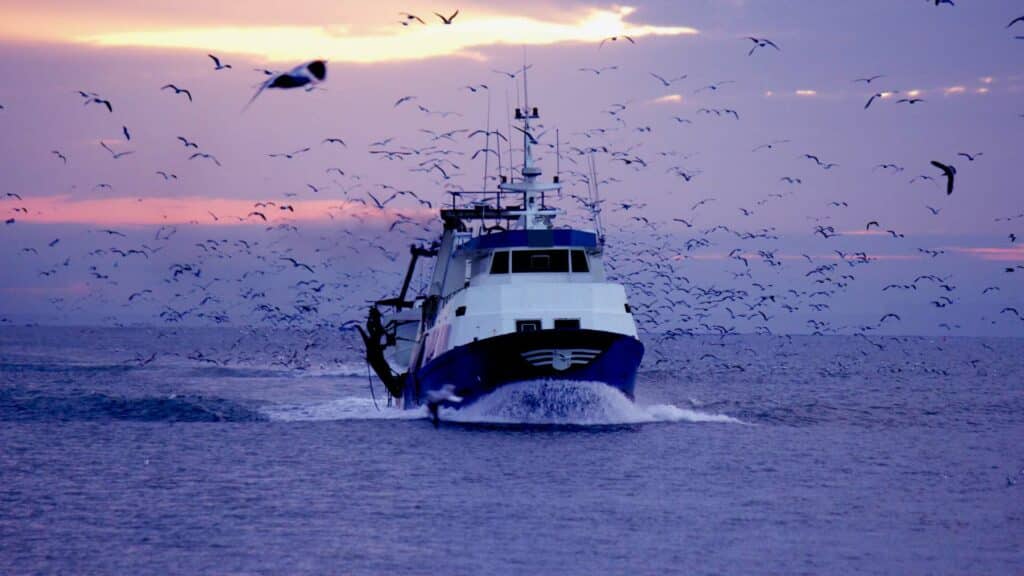Vessel tracking software has become indispensable for stakeholders across the maritime industry, as they fulfill a crucial role in various operations. The market provides a wide range of options to accommodate the requirements of these different actors, empowering them to monitor vessel positions effectively and carry out their business activities accordingly. Here, we present 10 highly regarded vessel tracking solutions available in the market that offer advanced functionalities and comprehensive features.
What are the 10 best vessel tracking software?
The role and principles of vessel tracking software are similar across different solutions. Essentially, they track the vessel movements and precise location in real-time, making this data available to remote entities like shore-based agencies or other ships.
Dedicated software uses Artificial Intelligence, Machine Learning, and Big data … to process all transmitted information, and users can access individual vessel positions and other relevant technical and non-technical details (type speed, course, direction…) through tracking websites that display it on nautical charts. This gives them an accurate and up-to-date view of ships’ arrival times, and container/cargo status.
To accomplish this, vessel tracking solutions utilize a diverse range of technologies such as the Automatic Identification System (AIS), radio communication, GPS, and satellite-based vessel monitoring systems (VMS). These technologies work in conjunction with tools like Google Earth, providing users with immediate access to comprehensive details of almost all ships.
Vessel tracking serves various purposes, including:
- fleet and traffic management;
- maritime and logistics operations optimization;
- supply chain efficiency improvement;
- safety and security enhancement;
- compliance with regulations set by local governments or international regulatory bodies such as the International Maritime Organization (IMO).

Despite these similarities, some ship tracking tools are well-known. Most of them offer free ship tracking services, while some features may come with a fee or require a subscription.
1. MarineTraffic
This open and community-based project operates a robust network of over 2,000 AIS stations spanning more than 165 countries. The website boasts an impressive user base of over 600,000 registered users, and it receives around 20 million monthly visits. MarineTraffic provides a range of services, encompassing satellite AIS coverage, advanced satellite tracking of ships of various types, enhanced density maps, and nautical charts, 800 million vessel positions, and 18 million vessel and port-related events. Moreover, it provides information on approximately 650,000 marine assets, encompassing vessels, ports, lights, and more.
2. VesselFinder
Since its establishment in 2011, it has offered real-time data on over 100,000 vessels daily, utilizing an extensive network of terrestrial AIS receivers. It enables efficient monitoring of boats and presents information on port calls, master data about ships, and a comprehensive voyage history for each vessel. Furthermore, VesselFinder offers historical AIS Data services, which allow users to access customized ship movement reports, analyze traffic density, and even simulate vessel movements through video simulations, among other features. It also offers a mobile app for easy access on smartphones and tablets.
How to Track a Ship In Real-Time ?
Let us look at how a ships’ real-time tracker works, its details and features, its benefits for all players in the shipping sector but also its weaknesses…
3. Sinay Visi-Fleet
With its user-friendly interface, stakeholders can easily compile a list of vessels and effortlessly track their real-time positions through an intuitive map display. Furthermore, this module offers valuable insights into recent vessel activities, allowing users to calculate the Estimated Time of Arrival (ETA) at the next port of call or the final destination port. A dedicated API eases its integration into any company’s information system.
4. FleetMon
Since 2007, this open database of ships and ports worldwide provides real-time AIS position data for ships, along with technical information about more than 500,000 vessels, but also vessel schedules, port arrivals, trading patterns, and customer-searched photos. Through its interactive tool called FleetMon Explorer, users can access a real-time view of marine traffic and gather information related to operations monitoring, logistics scheduling, fleet tracking, and traffic analysis.
5. VesselTracker
This tracking website boasts an extensive database comprising over 1,000,000 vessels, offering users both real-time and historical data on ships navigating worldwide (vessel specifications, characteristics, ownership details…). The platform facilitates vessel monitoring through map views and various layers, including Google Satellite, Google Earth, and nautical charts, among others. Vesseltracker also offers analytics and reports on vessel movements and port events, allowing users to gain valuable insights into maritime activities.
6. ShipPlotter
This software allows users to receive and decode AIS signals using a radio receiver or networked data feed. It provides real-time vessel positions, tracks, and other relevant data.
7. ShipFinder
This online ship tracking service offers multiple search options to locate vessels based on criteria such as ship number, tonnage, capacity, ownership, and construction details. It collects AIS data from vessels over 300 tonnes, passenger vessels, and smaller crafts like yachts to provide real-time information to its customers. The tool enhances user experience by keeping track of their search history, allowing for more personalized results. Additionally, it offers a premium paid membership for advanced users seeking additional features and functionalities.

8. Signal Ocean Platform
Signal Ocean Platform provides offers vessel tracking capabilities of individual vessels or entire fleets, monitors their movements on interactive maps, and accesses historical data for analysis. It uses AIS data, satellite tracking, among other sources. It provides advanced commercial analytics and market intelligence tools in order to enable users in making data-driven decisions.
9. VT Explorer
VT Explorer offers users access to real-time AIS position data and technical information for over 100,000 ships on a daily basis, along with images of the tracked ships. The platform can be accessed from both personal computers and mobile devices, enabling users to monitor ship schedules, and arrivals, and analyze trading patterns effectively.
10. Global Fishing Watch
Specifically designed to monitor and combat illegal, unreported, and unregulated (IUU) fishing activities worldwide. It is a partnership between various organizations, including Google, SkyTruth, and Oceana. It employs satellite-based and AIS systems, advanced algorithms, and machine learning techniques to analyze data and identify fishing vessels, then provides a visual representation of vessel movements on an interactive map.
The platform offers additional features such as vessel identification, vessel tracking history, and data overlays, insights into fishing hotspots, and areas of high fishing activity, and helps enforce fishing regulations and marine conservation efforts. It aims to promote sustainable fishing practices, protect marine ecosystems, and enhance global fisheries management. The platform is used by governments, researchers, non-governmental organizations (NGOs), and other stakeholders involved in fisheries management and conservation efforts to monitor fishing activities and combat IUU fishing worldwide.

These examples represent only a fraction of the vessel online tracking solutions available in the market. There is a comprehensive selection of solutions to cater to the diverse needs of various stakeholders in the maritime industry who rely on real-time accurate vessel positions. This includes shipping lines, maritime authorities, port operators, marine contractors, fisheries, shippers, importers, beneficial cargo owners, logistics providers, and coast guards.
How to choose the best vessel tracking solution?
No single vessel tracking system can claim to be the absolute best across all criteria. The choice of the most appropriate solution for a company depends on a multitude of factors, including:
- its specific requirements, constraints, and objectives: the size of the fleet, type of vessels to be monitored, geographical area of operations, operational considerations, technical infrastructure, budget limitations …
- the desired features and functionalities: real-time tracking data, advanced analytic capabilities, extensive historical data, and integration options….
- the technology used
- accuracy, coverage, user interface, scalability, cost-effectiveness…
Each company has to conduct a thorough evaluation of its needs before comparing the available vessel tracking tools and deciding what the most suitable one is.
As a matter of fact, a solution that may be ideal for a large shipping corporation with an extensive fleet might not be feasible or necessary for a smaller maritime business with more modest requirements. Reading customer reviews might also help to determine if one given software aligns with its expectations.
To make a more informed decision, customers can seek assistance and request trials from specialists in the field. This can help them gain expert guidance with the various ships tracking software available, enabling them to evaluate their suitability and effectiveness before making a final choice.
Frequently Asked Questions About Best Vessel Tracking Solutions
They track the vessel movements and precise location in real time.
It allows better fleet & traffic management, optimize logistics operations, improvement of supply chain efficiency, enhancement of safety and security, and compliance with regulations.
Vessel tracking solutions used different technologies such as artificial intelligence, big data, machine learning, satellite, AIS, GPS, VMS, and more.
- Sinay Visi-Fleet
- Marine Traffic
- FleetMon
- Vessel Tracker
- Vessel Finder
- ShipPlotter
- Ship Finder
- Signal Ocean Platform
- VT Explorer
- Global Fishing Watch
These solutions are part of the major vessel tracking software.
The choice of a vessel tracking solution depends on different factors: requirements, constraints & objectives; features and functionalities; technology used; and accuracy, coverage, interface, and cost.


